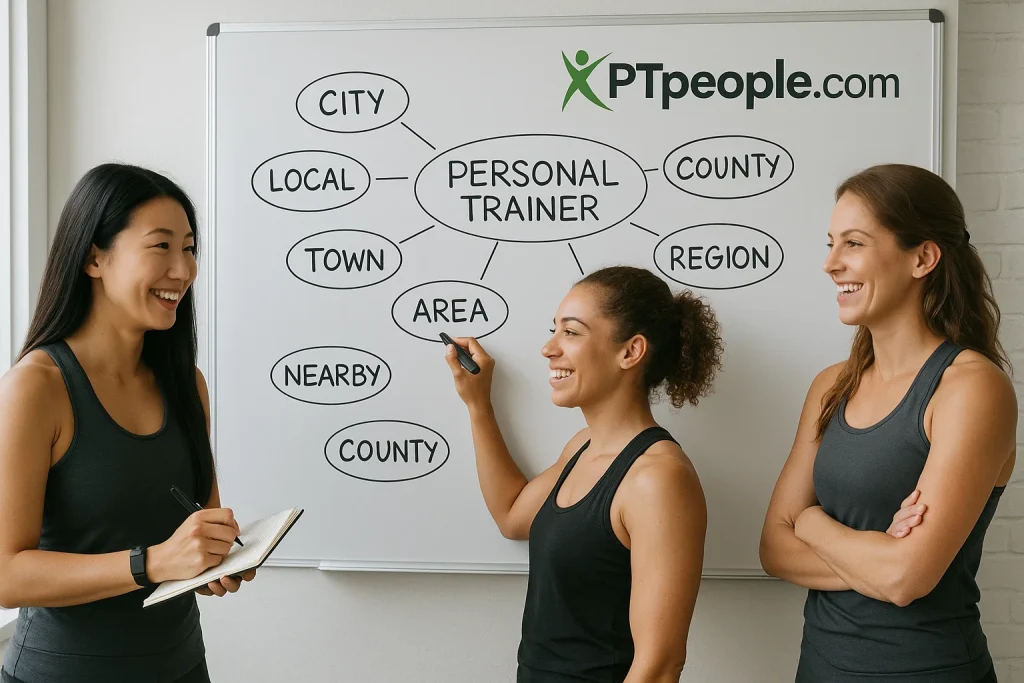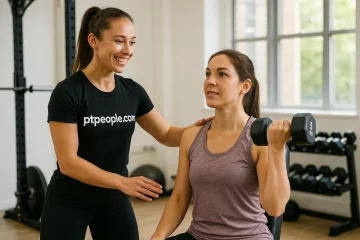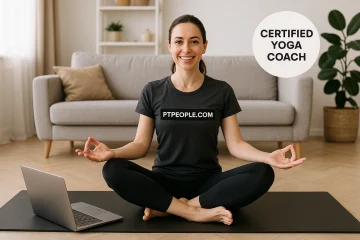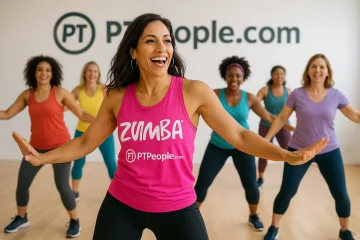
The Best Keyword List for Your Personal Trainer Website
If you’re a personal trainer or fitness business owner, you’ve probably heard that “you need SEO”—but what does that actually mean when it comes to your website? One of the most crucial parts of search engine optimisation is knowing how to use SEO keywords correctly.
At PTpeople.com, we help personal trainers worldwide grow their visibility. If you don’t have a website yet, listing your business on PTpeople is the fastest way to get found online — no coding, no tech, just real local exposure.
This complete guide covers everything from keyword research to placement, and how PTpeople can support trainers in cities like London, Dubai, New York, and beyond.
Why You Need SEO Keywords On Your Fitness Website
Most people looking for a trainer go straight to Google. If your site — or profile — doesn’t include targeted long-tail keywords for personal trainers, you’re missing out on serious leads. According to BrightLocal, 78% of local mobile searches lead to an offline purchase (source).
What Are SEO Keywords And Why Do They Matter?
SEO keywords are the specific words or questions people type into search engines. For fitness, these include “best personal trainer for fat loss in London” or “affordable online strength coach for seniors”. These keywords help Google know where to rank your page.
If you don’t have your own website, listing your services on PTpeople allows us to do the SEO work for you — including keywords, location targeting, and backlinks.
How To Choose The Best SEO Keywords For Your Fitness Niche
Start by identifying your audience:
- New mums looking for at-home yoga workouts
- Professionals in Dubai needing lunchtime sessions
- Teens seeking beginner strength coaching
Use tools like:
- Google Keyword Planner
- Ubersuggest
- Semrush
Aim for low-competition long-tail keywords for personal trainers, such as:
- “private yoga instructor near me for beginners”
- “female personal trainer in Dubai for women only”
Where To Use SEO Keywords On Your Fitness Website Or PTpeople Listing
Even if you don’t own a full site, you can still rank using:
- Your PTpeople profile title and description
- Alt text on uploaded images
- Service categories and skills listed in your profile
- Client reviews mentioning your specialisms
More info: Build a Personal Trainer Website Fast
Optimising Blog Content With Fitness Keywords
If you publish blogs, use keywords in:
- Titles and subheadings
- First 100 words
- Internal anchor links
Learn how: How to Advertise Your Personal Training Services
Evergreen blog example: Online vs In-Person Training – Pros and Cons
Local SEO Strategies For Personal Trainers
Add city-specific long-tail keywords to your content, e.g., “HIIT coach in Sharjah for teens” or “weight loss personal trainer in Manchester”.
If you’re listed on PTpeople.com:
- We handle local SEO setup for every city
- You appear in search results for your region
See: Personal Trainer Cost in Abu Dhabi
Bonus stat: 92% of searchers choose businesses on the first page of local results.
Top Long-Tail Keywords For Personal Trainers (Location-Based)
Sample Keywords Across 20 Cities:
- London: best personal trainer in London for fat loss, London HIIT class for busy professionals
- Dubai: affordable Dubai fitness coach for women, Dubai personal trainer at home
- New York: certified NYC trainer for seniors, online fitness trainer New York
- Los Angeles: LA personal trainer for actors, mobile fitness trainer Los Angeles
- Tokyo: English-speaking personal trainer Tokyo, HIIT coach Tokyo expats
- Seoul: female weight loss coach Seoul, online fitness trainer in Korea
- Berlin: Berlin personal trainer near Mitte, home workout coach Berlin
- Madrid: Spanish-speaking fitness trainer Madrid, Madrid PT for expats
- Toronto: strength coach Toronto for teens, women-only PT in Toronto
- Sydney: Sydney outdoor bootcamp trainer, PT for new mums in Sydney
- Singapore: Singapore PT for desk workers, yoga coach Singapore CBD
- Paris: Paris English fitness instructor, Paris trainer for fat loss
- Edinburgh: fitness trainer for students Edinburgh, private gym PT Edinburgh
- Doha: weight loss coach Doha women, Doha fitness trainer at home
- Ajman: Ajman PT for men, personal training for fat loss in Ajman
- Sharjah: HIIT trainer Sharjah women, group fitness in Sharjah
- Ras Al Khaimah: personal trainer for weight gain RAK, certified PT RAK
- Manchester: budget personal trainer Manchester, muscle gain trainer Manchester
- Birmingham: PT for over 50s Birmingham, gym coach Birmingham
- Abu Dhabi: certified fitness coach Abu Dhabi, PT Abu Dhabi for weight loss
How PTpeople Supports Trainers Without A Website
Still don’t have your own website? No problem.
At PTpeople, we’ve built a high-traffic platform where:
- Your profile includes keywords for your services and location
- Our SEO team handles ranking optimisation and personal trainer website marketing.
- You gain trust by appearing in a verified global PT directory
See How to Become a Personal Trainer in UAE and Top Instagram Hashtags for Personal Trainers to support your brand visibility.
How To Measure SEO Keyword Success
Use:
- Google Analytics (for traffic & user behaviour)
- Search Console (for keyword performance)
Check:
- Which keywords bring traffic
- Bounce rate and time on page
- Click-through rate from search results
Also update older content regularly: Updating Blog Content for SEO
Finally…
Whether you run a website or rely on a listing, using the right fitness SEO keywords can 10x your traffic and leads.
At PTpeople, we’ve simplified this by giving you:
- A keyword-optimised profile
- A platform built for Google rankings
Ready to grow? List yourself today.

FAQs:
What are SEO keywords for personal trainer websites?
SEO keywords are the exact phrases your ideal clients type into search engines. For personal trainers, this includes terms like “female personal trainer in Dubai”, “weight loss coach for busy professionals”, or “online personal trainer UK”. These help Google connect your site to the right audience.
How do I know which keywords to use?
Start by identifying your target client — their goals, location, and pain points. Then use keyword tools like Ubersuggest, Semrush, or Google Keyword Planner to find search phrases with high intent and manageable competition.
Why are long-tail keywords better for personal trainers?
Long-tail keywords (e.g., “online personal trainer for postpartum moms”) are more specific and less competitive. They attract highly motivated leads who are closer to buying and improve your chances of ranking faster.
How many keywords should I target on each page?
One primary keyword, and 3–5 closely related long-tail variations is ideal. Place them naturally in headings, subheadings, the first paragraph, and internal links — without stuffing.
Where should I place keywords on my fitness site?
Use them in your:
- Page titles and meta descriptions
- Headings (H1–H3 tags)
- First and last paragraphs
- Image alt text
- Internal and external links
What are some good keyword examples for local SEO?
Try location-based keywords like:
- “affordable personal trainer in Manchester”
- “HIIT coach near me in Toronto”
- “home visit personal training Dubai”
These match how real people search.
Can I rank without a personal website?
Yes. Listing your profile on high-authority platforms like PTpeople.com gives you access to pre-ranked pages in multiple cities. You can still optimise your profile with keywords.
How often should I update my keywords?
Review them quarterly. Track performance using Google Search Console. Update underperforming pages by:
- Refreshing titles/descriptions
- Rewriting content for new keywords
- Adding internal links
What keyword types should I mix together?
Include a blend of:
- Short-tail: “personal trainer”
- Long-tail: “personal trainer for over 50s in Leeds”
- LSI (related terms): “fitness coach”, “exercise mentor”, “weight loss plan”
Do I need different keywords for blog posts vs services?
Yes. Blogs should answer searcher questions (e.g., “how to start fitness at 40”), while service pages should target conversion terms (e.g., “hire personal trainer Edinburgh”).
What if I train online and locally — can I target both?
Absolutely. Create separate landing pages with keywords like:
- “virtual fitness coaching UK”
- “in-person PT sessions in Birmingham”
How can I research what clients are searching?
Use tools like:
- Google’s “People Also Ask”
- Reddit & Quora fitness threads
- Autocomplete on Google
- AnswerThePublic
These reveal common questions and keyword angles.
Should I include competitor keywords?
Yes — but only if relevant. Use tools like Ahrefs to analyse top trainers in your area, then target similar or better keywords with unique content.
What are keyword clusters and why do they matter?
A keyword cluster is a group of closely related terms around one topic (e.g., “personal trainer for weight loss,” “weight loss coach near me,” “fat loss workout plan”). Grouping these improves SEO and helps Google understand your niche authority.
Is keyword research still worth it in 2025?
Yes — even more so. As voice search, AI answers, and local SEO evolve, targeting high-intent, natural-sounding keywords is key to attracting ready-to-convert clients.








